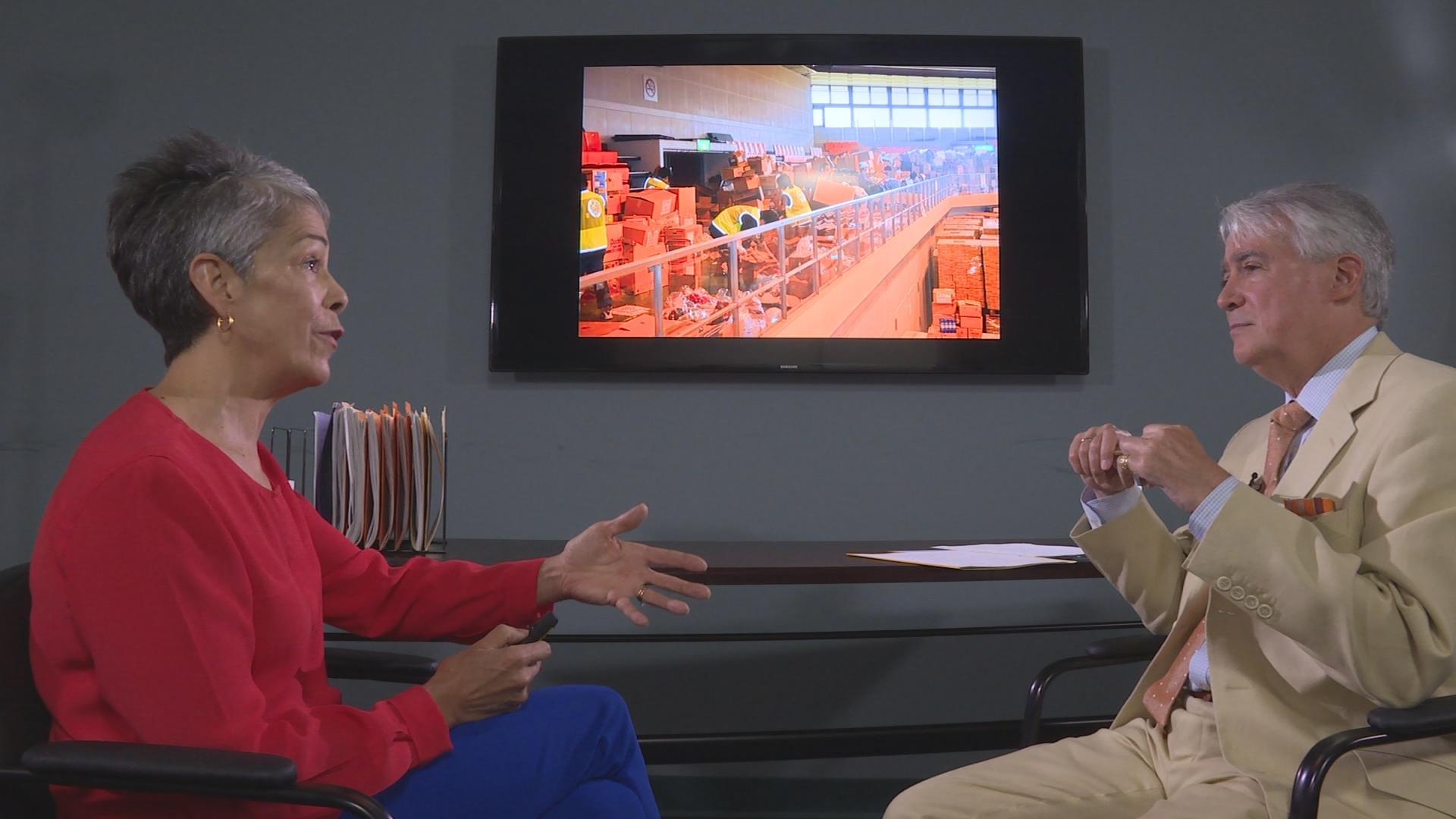Storyline
AFTER FLOOD WATERS RECEDE AND THE GROUND STOPS SHAKING, AREAS HIT BY NATURAL DISASTERS THEN FACE A SERIOUS “SECOND DISASTER,” EXPERTS TELL “CBS SUNDAY MORNING”

(L-R) Juanita Rilling and Scott Simon.
As Houston continues to deal with flooding and Ecuador and Japan struggle to recover from devastating earthquakes, relief groups and experts brace for the onslaught of people with good intentions donating items that simply can’t be used in those areas. Humanitarian workers call it “The Second Disaster,” as Scott Simon reports on CBS SUNDAY MORNING to be broadcast April 24 (9:00 AM, ET) on the CBS Television Network.
“Generally after a disaster, people with loving intentions donate things that cannot be used in a disaster response, and in fact may actually be harmful,” Juanita Rilling, director of The Center of International Disaster Information tells Simon. “And they have no idea they’re doing it.”
For instance, Rilling recalls an incident in Honduras following Hurricane Mitch in 1998. She got a call from a logistics expert saying a planeload of supplies couldn’t land because the runway was clogged with donations of clothes, including winter coats that were of no use to survivors needing food, shelter and medical attention.
Simon explores the issues facing areas hit by natural disasters through interviews with humanitarian aid workers who have helped, following earthquakes, hurricanes and the Ebola crisis.
Following the elementary school shooting at the Sandy Hook Elementary School in Newtown, Conn., people started sending boxes of school supplies, toys, bikes and teddy bears, 67,000 of them, all of which had to be unpacked, sorted and distributed.
“I think it was a nice gesture,” says Chris Kelsey, then Newtown’s tax accessor. “There was a need to do something for the kids. There was a need to make people feel better. I think the wave of stuff we got was a little overwhelming in the end.”
The relief experts are aware they walk a fine line by discouraging any donations, but they tell Simon the best way to help is by donating to reputable organizations. Money funneled by those organizations to local groups in devastated areas is more effective than just sending “stuff” directly, they tell Simon.
Cash donations, Rilling says, are often most effective because “they buy exactly what people need, when they need it.”
CBS SUNDAY MORNING is broadcast Sundays (9:00-10:30 AM, ET) on the CBS Television Network. Rand Morrison is the executive producer.
Follow CBS SUNDAY MORNING on Twitter, Facebook, Instagram and CBSNews.com. Listen to CBS SUNDAY MORNING podcasts at Play.it.
# # #
Press Contact:
Richard Huff 212-975-3328 HuffR@cbsnews.com
-
Publicity
Isabel Pellegrino
Isabel.Pellegrino@paramount.com -
Publicity
Richard Huff
HuffR@cbsnews.com
